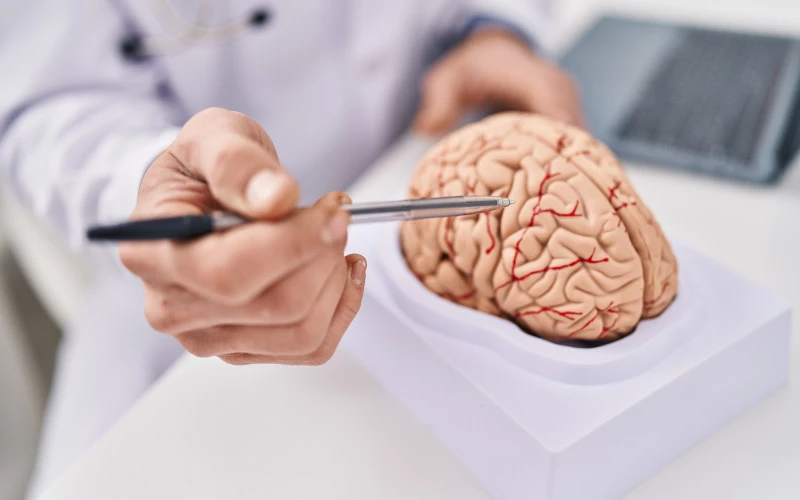Why the Best Psychologist in Delhi Can Transform Your Psychological Wellness
Why the Best Psychologist in Delhi Can Transform Your Psychological Wellness
Blog Article
Psych Therapy: A Comprehensive Overview to Techniques and Outcomes

Cognitive-Behavioral Therapy
Cognitive-Behavioral Treatment (CBT) is a commonly utilized psychotherapeutic method that focuses on recognizing and changing useless reasoning and behavior patterns. Established in the 1960s by Aaron T. Beck, CBT integrates cognitive and behavioral concepts to resolve different mental health and wellness issues, including clinical depression, anxiety, and stress-related conditions. The facility of CBT is that maladaptive thoughts add to psychological distress and maladaptive habits. By reorganizing these thoughts, individuals can achieve significant renovations in their psychological well-being and everyday functioning.
Strategies such as cognitive restructuring, direct exposure therapy, and skill-building workouts are generally used. Cognitive restructuring involves tough and changing adverse idea patterns, while direct exposure therapy aims to lower worry and stress and anxiety through steady direct exposure to been afraid objects or scenarios.
Evidence-based research sustains the efficacy of CBT for a vast array of emotional conditions - Best Psychologist in Delhi. Its emphasis on ability acquisition and self-help strategies equips clients to continue progress separately after therapy ends. The versatility and performance of CBT have actually made it a keystone in contemporary psychotherapeutic practice
Psychodynamic Techniques
Rooted in the early theories of Sigmund Freud, psychodynamic methods focus on checking out the subconscious mind and its influence on actions and feelings. These techniques aim to uncover concealed ideas and sensations that might be driving maladaptive habits and emotional distress. Central to this method is the principle of internal dispute, frequently originating from unresolved previous experiences, especially those from youth.
Therapists using psychodynamic techniques use a number of essential techniques, including free organization, where patients are urged to speak easily to reveal unconscious material, and desire analysis, which analyzes the latent content of dreams. Furthermore, the expedition of transference and countertransference dynamics within the therapeutic relationship is vital. These communications can supply insights right into the patient's internal globe and relational patterns.
Psychodynamic treatment is commonly longer-term compared to various other modalities, offering a extensive and deep understanding of the person's psyche. Research study indicates that it can be especially effective for intricate psychological wellness problems, such as personality problems and persistent depression. By cultivating self-awareness and psychological understanding, psychodynamic therapy seeks to bring subconscious material to consciousness, making it possible for individuals to attain significant and long-term adjustment in their lives.
Humanistic Methods
Structure on the foundations laid by psychodynamic techniques, humanistic strategies offer a distinct viewpoint focused on individual prospective and self-actualization. Originating in the mid-20th century, these strategies prioritize the inherent benefits and growth capacity of people, highlighting an alternative sight of human experience. Key figures such as Carl Rogers and Abraham Maslow have actually considerably influenced this restorative strategy, which includes techniques like client-centered treatment and Gestalt therapy.
Client-centered treatment, created by Rogers, plays an essential role in humanistic methods. The specialist's duty is even more of a facilitator than an authority, urging clients to harness their inner sources for recovery.
Gestalt treatment, another essential humanistic strategy, highlights present minute understanding and the combination of mind and body. By concentrating on the "present moment," clients obtain higher insight right into their present feelings and actions. Techniques such as role-playing and directed visualization are usually utilized to aid customers acquire a deeper understanding of themselves, eventually bring about enhanced self-awareness and gratification.
Integrative Therapies
Integrative therapies stand for a synthesis of various therapeutic redirected here methods customized to satisfy the one-of-a-kind requirements of each client. This approach recognizes the complexity of human psychology and the multifaceted nature of mental health issues. By incorporating elements from various institutions of psychiatric therapy-- such as cognitive-behavioral therapy (CBT), psychodynamic therapy, and humanistic techniques-- integrative treatments supply an even more adaptable and holistic treatment standard.
Specialists of integrative treatment analyze each customer's particular needs, signs, and personal background to devise a personalized therapy strategy. This customized method enhances the potential for therapeutic success by dealing with the origin of emotional distress and advertising overall health. Methods might consist of mindfulness exercises, cognitive restructuring, and psychological processing, each picked to target different aspects of the customer's problems.
Moreover, integrative treatments highlight the therapeutic relationship, checking out the client-therapist bond as an essential part of reliable therapy. This relationship cultivates an encouraging setting where customers really feel safe to check out and address their problems. The adaptability of integrative therapies makes them suitable for a wide array of problems, consisting of anxiety, depression, injury, and social troubles, therefore boosting their applicability and efficiency in diverse scientific setups.

Measuring Therapy End Results
Assessing the performance of go to this site psychiatric therapy is vital for both customers and medical professionals to guarantee that the therapy is producing the preferred end results. To accomplish this, numerous approaches and devices are used to measure treatment outcomes methodically. Standardized evaluation tools, such as the Beck Depression Stock (BDI) and the Generalized Stress And Anxiety Condition 7 (GAD-7), provide measurable information on sign intensity and modifications over time.
In enhancement to standard tools, qualitative techniques like customer self-reports and clinical interviews provide useful insights into the individual experiences and regarded progress of customers. Regularly scheduled examinations, usually at the start, axis, and end of treatment, aid in tracking the trajectory of improvement or determining locations requiring change.
Outcome dimension is not limited to signs and symptom decrease; it also incorporates functional enhancements in day-to-day live, such as far better interpersonal connections, boosted job productivity, and enhanced general well-being. Modern developments in digital wellness have actually introduced mobile apps and online platforms that assist in real-time tracking and responses, additionally fine-tuning the evaluation procedure.
Eventually, an extensive method to determining treatment outcomes makes certain that restorative interventions are reliable, reliable, and tailored to satisfy the private needs of customers, thereby enhancing the total healing experience.
Verdict
Psychotherapy provides a diverse range of strategies targeted at resolving specific mental wellness concerns and enhancing overall health. Cognitive-Behavioral Treatment and content psychodynamic strategies target inefficient thoughts and unconscious impacts, respectively. Humanistic techniques focus on individual growth and self-actualization, while integrative treatments incorporate multiple approaches for customized treatment strategies. Examining therapy results through standardized analyses and qualitative methods guarantees a comprehensive understanding of effectiveness, eventually assisting clients towards withstanding mental wellness improvements.
From the structured technique of Cognitive-Behavioral Therapy (CBT) to the deep exploration of the subconscious in psychodynamic treatment, each method brings distinct advantages. Its emphasis on skill procurement and self-help methods empowers customers to proceed progress individually after treatment wraps up (Best Psychologist in Delhi). Key figures such as Carl Rogers and Abraham Maslow have actually dramatically affected this healing strategy, which incorporates techniques like client-centered therapy and Gestalt therapy

Report this page